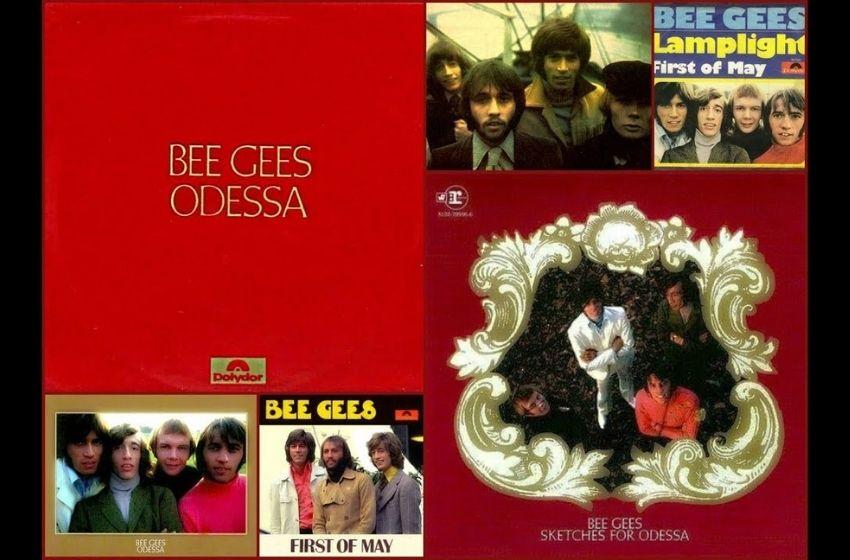The double LP Odessa was an ambitious concept album of the famous music group Bee Gees about the sinking of an imaginary ship in the Baltic Sea in 1899.
"Odessa", a double vinyl LP released on 30 March 1969, was the group's fourth album released internationally, and their only double album of original music. An ambitious project, originally intended as a concept album on the loss of a fictional vessel in 1899, it created tension in the band regarding the work's direction; finally, a dispute over which song to release as a single led Robin Gibb to leave temporarily the group.
It would be the final album to feature the band's original incarnation, and the last to include their guitarist Vince Melouney, who, after recording eight songs for the album, left the group amicably and joined another group, wanting to pursue a more bluesy direction. The recording took three or four months which was a long time in those days. "Bee Gees 1st" was done in a month.

Initially, the LP was in an opulent red flocked cover with gold lettering. The gatefold has a large dotted image of people leaving a ship in a lifeboat.
The album includes the 1969 hit single "First of May" (UK no. 6 / US no. 37) and notable tracks such as "Lamplight", "Marley Purt Drive" and "Melody Fair", the latter of which features on the 1973 compilation “Best of Bee Gees Vol. 2â€.

Prior to release, there were harsh disagreements over which song was to be released as a single. When the Robin-led "Lamplight" lost out to "First of May" a Barry solo vocal, Robin Gibb decided to leave the group in March 1969, though he would rejoin the group in August 1970. Thereafter, Robin told Mojo magazine, in 2003, about his departure from the band after the release of "Odessa", saying: "we had egos". As Barry explained:
Everything got out of hand and we didn't know which way we were heading. We'd never really finished the album. It was our own production and we were very proud of it, but it all turned out different. It marked a period of breaking up and we weren't talking to each other, so we weren't in the studio together half the time and weren't as friendly toward each other.
Barry Gibb
Maurice later described the album as heavy.
People thought it was an in-depth album, like: "What do they mean by those lyrics?" and "What's this all about?". There's all sorts of different areas on it. It went up and down in places, but a lot of people regard it as our "Sgt. Pepper". To us, I don't think it was the best album we made, but the main title "Odessa" I loved.
Maurice Gibb
Despite reaching the UK Top Ten and the US Top 20, the album was not particularly well-received by the public and the music press on release, though now is regarded by many reviewers as the most significant of the group's Sixties albums.
The album was reissued again in January 2009, as a deluxe three-disc set, and is included in “1001 Albums You Must Hear Before You Dieâ€.



















